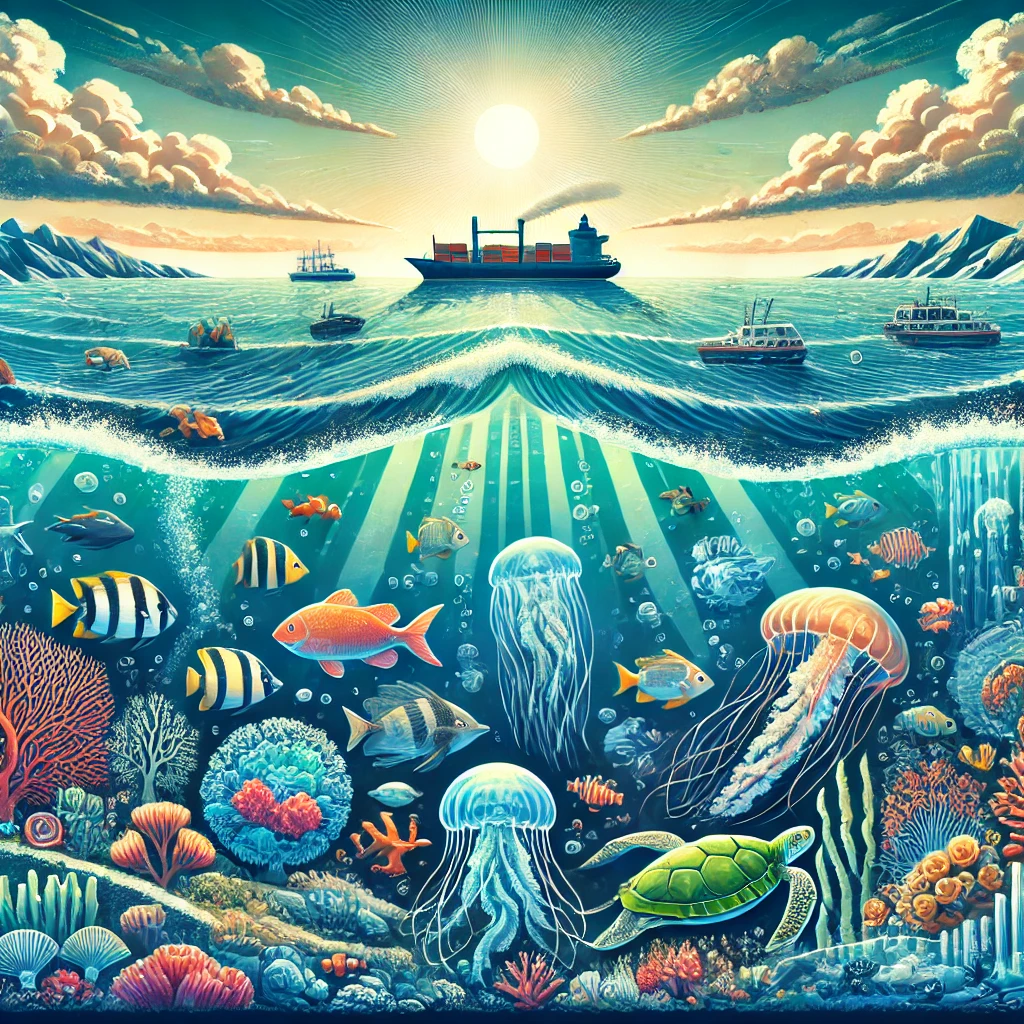7 Astonishing Facts About the Oceans
1. Ocean Coverage
Oceans cover about 71% of the Earth’s surface, making them the largest habitat on the planet. This vast expanse includes five major oceans: the Pacific, Atlantic, Indian, Southern, and Arctic Oceans. The oceans play a crucial role in supporting life on Earth by regulating climate, storing carbon, and providing habitat for countless species. They also influence weather patterns, support global trade through shipping routes, and offer recreational opportunities for millions of people.
2. Mariana Trench
The Mariana Trench is the deepest part of the ocean, reaching depths of about 36,000 feet (10,972 meters) in its Challenger Deep section. Located in the western Pacific Ocean, the trench is a crescent-shaped scar in the Earth’s crust. The extreme conditions in the Mariana Trench, including high pressure and darkness, create a unique environment that is home to specially adapted organisms. Exploration of this trench has provided valuable insights into the geological processes and biodiversity of the deep ocean.
3. Biodiversity
The oceans are home to an estimated 2.2 million species, many of which are still undiscovered. Marine biodiversity ranges from the smallest plankton to the largest animal on Earth, the blue whale. Coral reefs, mangroves, deep-sea vents, and open ocean ecosystems host a diverse array of life forms. This biodiversity is essential for the health of marine ecosystems and provides numerous benefits to humans, including food, medicine, and economic resources. However, many marine species are threatened by overfishing, habitat destruction, and climate change.
4. Great Barrier Reef
The Great Barrier Reef, located off the coast of Queensland, Australia, is the largest coral reef system in the world, stretching over 1,400 miles (2,300 kilometers). It consists of approximately 2,900 individual reefs and 900 islands. The reef is so large that it can be seen from space. It supports a diverse range of marine life, including fish, corals, mollusks, sea turtles, and seabirds. The Great Barrier Reef is also a UNESCO World Heritage site and a major tourist attraction. However, it faces significant threats from coral bleaching, pollution, and climate change.
5. Oxygen Production
Oceans produce over 50% of the world’s oxygen through marine plants and phytoplankton. Phytoplankton, microscopic organisms that live in the sunlit upper layers of the ocean, perform photosynthesis, converting carbon dioxide into oxygen. This process is critical for maintaining the balance of gases in the atmosphere and supporting life on Earth. Marine algae, including seaweed, also contribute to oxygen production. The health of these marine organisms is vital for sustaining the oxygen supply and the overall health of the planet.
6. Ocean Currents
Ocean currents play a crucial role in regulating the Earth’s climate and weather patterns. These currents are driven by wind, temperature differences, salinity, and the Earth’s rotation. They transport warm water from the equator toward the poles and cold water from the poles toward the equator, helping to distribute heat and regulate temperatures globally. Ocean currents also influence weather systems, such as hurricanes and monsoons, and play a role in nutrient cycling, supporting marine life. The Gulf Stream, for example, is a powerful current that affects the climate of North America and Europe.
7. Plastic Pollution
An estimated 8 million metric tons of plastic enter the oceans each year, posing a severe threat to marine life and ecosystems. Plastic pollution affects all parts of the ocean, from coastlines to the deep sea. Marine animals, such as turtles, seabirds, and fish, can ingest plastic or become entangled in it, leading to injury or death. Microplastics, tiny plastic particles, can accumulate in the food chain, affecting both marine life and human health. Efforts to reduce plastic pollution include reducing plastic use, improving waste management, and increasing recycling and cleanup initiatives.
These seven facts highlight the vastness, complexity, and importance of the world’s oceans, emphasizing the need to protect and preserve these vital ecosystems for future generations.


6 responses to “7 Astonishing Facts About the Oceans”
I would like to thnkx for the efforts you have put in writing this blog. I am hoping the same high-grade blog post from you in the upcoming as well. In fact your creative writing abilities has inspired me to get my own blog now. Really the blogging is spreading its wings quickly. Your write up is a good example of it.
This actually answered my problem, thanks!
I¦ve been exploring for a bit for any high-quality articles or blog posts in this kind of house . Exploring in Yahoo I finally stumbled upon this site. Studying this info So i¦m satisfied to express that I’ve a very good uncanny feeling I came upon just what I needed. I most certainly will make certain to don¦t disregard this website and give it a glance on a continuing basis.
I enjoy reading and I think this website got some really useful stuff on it! .
Great site. Lots of helpful info here. I am sending it to a few pals ans additionally sharing in delicious. And certainly, thank you for your sweat!
Very nice design and good subject matter, nothing else we want : D.